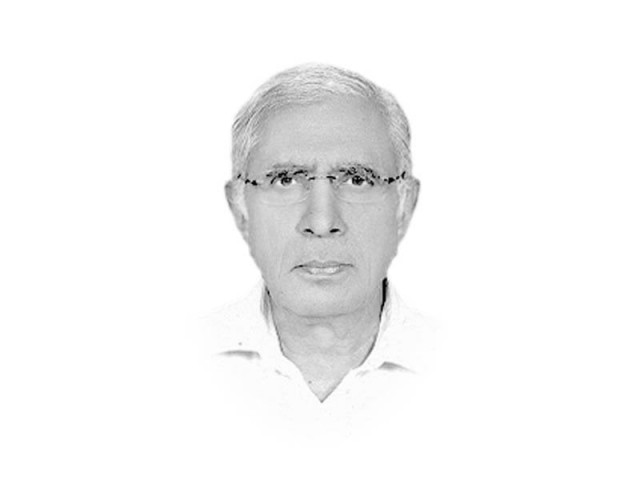The genesis of BJP
We need to handle with a lot of caution the emerging situation

The writer served as executive editor of The Express Tribune from 2009 to 2014.
Going by his role in the Gujarat Muslim massacre when he was its Chief Minister or by how Indian Muslims as a community was persecuted during his first term as India’s PM or by the bitter, jingoistic anti-Pakistan rhetoric during his electioneering for the second term or the way he dared send his jets across the international borders to bomb Balakot to what he says punish Pakistan for the Pulwama incident or the way he went gun blazing in India-occupied Kashmir (IOK) to suppress the intifada, one cannot but reach the conclusion that with him wielding almost demagogic powers in New Delhi, the days, months and years ahead for Pakistan and IOK are going to be highly uncertain. We need to handle with a lot of caution the emerging situation which could either deepen the uncertainty or remain as it were.
BJP* is the final product of a series of developments starting in the 19th century writings of the Hindu nationalists like Bankim Chandra Chatterjee. At about this time Arya Samaj appeared on the scene with the theory that Hindus were one unified entity and the Indian Muslims were the ‘others’ against whom Hindu community needed to be distinguished at all levels: social, ideological, and political. Next we see the establishment of the All-India Hindu Mahasabha (AIHM) which claimed to represent the collective interests of Hindus in India. It perceived the Indian Muslims as aggressive community in comparison with the ‘docile and fragmented Hindu community divided into various castes and sub-castes’.
The AIHM’s view of the Indian Muslims was dogmatised through the intellectual activities of VD Savarkar. His ideological thought played a vital role in the development of Rashtriya Swayamsevak Sangh (RSS). The institution of ‘Akhara’ conceived by the RSS was meant to end the perceived docility of the Hindu community. The RSS outlined five main characteristics that defined the Hindu nation: geography, race, religion, culture, and language. All those not sharing these characteristics in their entirety had no place in the Hindu nation.
In the post-independence India, the Bharatiya Jana Sangh (BJS), the political wing of the RSS, was called on to articulate its response to the break-up of ‘Akhand Bharat’. The BJS viewed the Indian Muslims as the most dangerous community not ready to be integrated into the ways of Bharat. The BJS perceived the partition of India as a tragedy and wished to undo it. It also felt the process of Pakistan’s creation responsible for the death and displacement of millions of Hindus. It emphasised that since the leaders of Pakistan had declared India their only enemy, that country should be treated in a similar manner. It upheld that Kashmir was part of India and should be fully integrated with India.
The BJS had for decades remained a party of upper caste, urban middle class, Hindi-speaking Hindus of northern and central India. The contradiction between its party structure – which was rigid, hierarchical and over-disciplined – and the requirements of India’s body-politic that required a flexible, opportunistic approach did not disappear.
The Hindu nationalists perceived the Indian political scene of the 1980s favourable for a new approach because there was a sharp decline in the strength of secular and socialist norms in the national politics of India. Therefore, on April 5, 1980, Hindu nationalists revived the BJS in the shape of a new party, the Bharatiya Janata Party (BJP). And the rest is history.
(*Source: Bharatiya Janata Party and the Indian Muslims – book by Muhammad Mujeeb Afzal, Assistant Professor, School of Politics an International Relations, Quaid-i-Azam University, Islamabad)













COMMENTS
Comments are moderated and generally will be posted if they are on-topic and not abusive.
For more information, please see our Comments FAQ